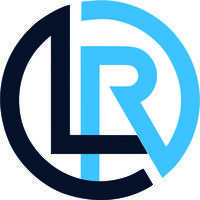Ethereum: Decentralized deposit functions built into bitcoin?
The concept of decentralized escrow has long been interested in blockchain and cryptocurrency spaces. Traditionally, the deposit services relied on centralized intermediaries to maintain and settle transactions until both parties were realized. Ethereum (ETH), with the emergence of a revolutionary platform that enables the creation of decentralized applications (dapps) and smart contracts, is increasingly feasible to explore alternative approaches.
Theoretical option
Theoretically, a decentralized deposit system can be structured on top of Bitcoin (BTC). The underlying blockchain technology provides a basis for the implementation of deposit functions without relying on third party mediators. Using Ethereum’s programmable blockchain and intelligent contractual capabilities, developers can create a completely autonomous and unreliable deposit solution.
decentralized deposit architecture
The decentralized deposit system would consist of the following components:
- Intelligent Contract : Self -defining contract with terms and logic that regulates the transaction process.
2.
- Contract Router : The mechanism responsible for the management of transactions through the decentralized network of nodes, ensuring secure and transparent settlement.
Benefits and benefits
The introduction of a decentralized deposit system built into bitcoin offers many benefits:
* Increased Safety
: No organization keeps or controls the basics, making compromise or theft difficult.
* Improved transparency : All transactions are recorded on the blockchain, allowing greater accountability and checking.
* Decreased fees : Transaction fees are eliminated because you do not have to rely on third party mediators.
Challenges and restrictions
Although the theoretical possibility of a decentralized deposit system is compelling, many challenges have to be addressed:
* Scalability : As the number of transactions increases, the network scalability can become a bottleneck.
* Interoperability : Providing a smooth interaction between various blockchain networks or wallets requires significant development and testing efforts.
Real implementations
Many projects have already explored decentralized deposit functions with Ethereum:
* aave : a decentralized lending platform that uses a tokenized escrow system to facilitate credit insurance.
* Binance Intelligent Chain : Native blockchain of the popular Cryptocurrency Exchange Binance, which has performed its own decentralized deposit solutions.
Conclusion
The concept of decentralized deposit functionality built into bitcoin is theoretically possible and desirable. With Ethereum’s programmable blockchain and smart contractual capabilities, developers can create robust, unreliable and safe deposit solutions that are used to a wide range of uses. As the blockchain ecosystem develops further, we can continue to see the more innovative applications of decentralized escrow technology.


